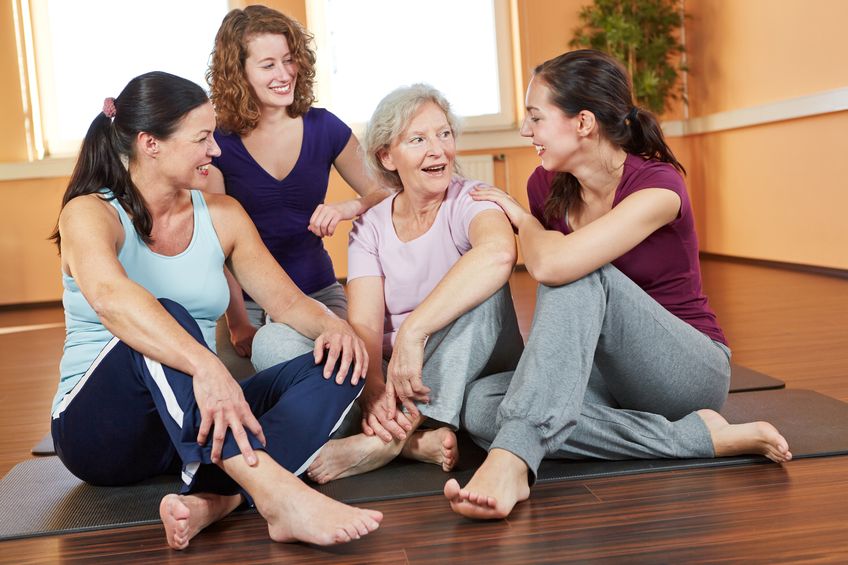by Martha Fagan
Last weekend, my dear friend Alisa asked if I would help her move into her new apartment. We have been friends for over 30 years, so this was not the first time she has requested my help with moving. The difference this time was that it was not an exciting or enlivening move to a new place; rather, it was leaving a place called home. Alisa is in the midst of a separation from her husband, and this move is the first of many necessary moves in the process. In other words, it is a bittersweet new beginning in her life.
Saturday morning dawned with gray skies and damp, cold New England “spring” weather. Staying snuggled in my warm bed with my current good book was far more appealing than making an hour-long trek to help out. Since friendship trumps reading in my world, I soon found myself climbing the stairs to Alisa’s new abode, the first of many climbs that day.
Once in the apartment, I was struck by a cacophony of sound—women’s expressive voices of admiration, screams of discovery and exclamation, and peals of laughter. This room was filled with her call-in-the-middle-of-the-night friends, her “choir.” This room was filled with love!
In her book Love 2.0, Barbara Fredrickson asks us to look at the emotion of love with new eyes. She writes, “…although you may subscribe to a whole host of definitions of love, your body subscribes to just one: Love is that micro-moment of warmth and connection that you share with another living being.” Love happens in the moment.
Fredrickson is best known for her “broaden and build” theory, described in her first book, Positivity. Research supporting this theory shows that positive emotions—such as joy, amusement, gratitude, and love—open us up, widen our vision, and allow us to see the big picture. “Those pleasant yet fleeting moments of connection that you experience with others expand your awareness in ways that accrue to create lasting and beneficial changes in your life.” Positive emotions transform us for the better, and utilizing them as we navigate our days helps us to overcome negativity and to thrive. And love is the supreme positive emotion!
Getting back to that gathering on Saturday morning, the connection and camaraderie in the room were palpable. If we use Fredrickson’s definition of love, as a shared moment of connection between people, then LOVE was present in that apartment in bold, capital letters!
Studies also have confirmed that people’s sense of connection through relationships is one of the top measures of well-being. Having a sense of belonging, of being part of something, of caring and being cared for, impacts how we feel and how we respond to life’s daily challenges.
David Myers, a best-selling psychology textbook author, describes it this way: “There are few better remedies for unhappiness than an intimate friendship with someone who cares deeply about you. Confiding is good for soul and body.”
We will all face challenges, sadness, and loss in life. The question is not if these “storms” will arise, but when? Our feelings of connection help strengthen us by building our resilience muscles. Nurturing our relationships is a way to enjoy life now and prepare for the times when life might not be so enjoyable.
It turns out that having a support network improves our overall health as well. A study published in Science by House, Landis, and Umberson concluded that having one or more close individuals in our lives, people we can rely on, has been found to be as important a factor for whether we develop chronic disease as the risk factors of smoking, hypertension, and obesity. Simply put, social support could be considered a magic pill for health and happiness.
Another exciting insight is that we can glean moments of love in our simple everyday interactions with strangers and friends alike. Making eye contact, smiling, and actively engaging in the moment all release oxytocin, the love hormone, in our bodies and brains in the same way as when we are interacting with those we consider dear to us. As we evoke these moments of positivity in our days, we attract more of them, becoming a human magnet for positive emotion.
So, Alisa will struggle through this chapter in her life AND she will have a much easier time because of the network of love and support she has surrounding her. She can boost herself even more by consciously seeking positive moments of connection through out her day—at work, in her neighborhood, or at the grocery store.
There is much in our lives that we have little or no control over. Thankfully, building healthy relationships is not one of them. We can strive to expand our circle of connection as one way of bringing joy to our days and helping to insulate us from life’s pain. Our shared humanity is the platform on which we can build a life filled with love and meaningful relationships.
I’ll be there for my friend Alisa, and I know that, when I need her, she will be by my side. For that, I am ever grateful.
Who is in your circle, your web of connection?
Martha Fagan, a graduate of CiPP2, writes and teaches on well-being and happiness. Her private coaching practice focuses on helping clients reach their goals while fostering greater levels of self-compassion and resiliency. She has a background in psychiatric nursing and is also trained in Mindfulness Based Stress Reduction. Martha has served as a teaching assistant for Maria Sirois at Kripalu.


 Martha Fagan, a graduate of
Martha Fagan, a graduate of 







Love this reminder Martha!
Thank you Linda. The move was a wonderful embodied reminder for me.
Thank you Linda. Sharing Alisa’s move was an embodied reminder for me.
obviously I need some technical help with responding….LOL
Female friendships are one of the gifts in life.
I couldn’t agree more.